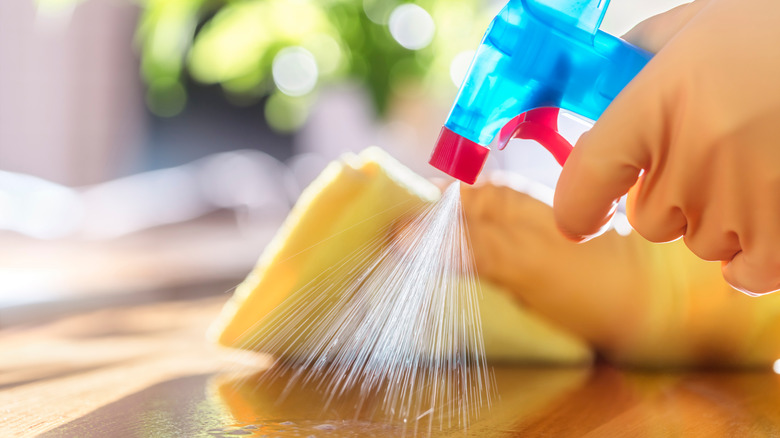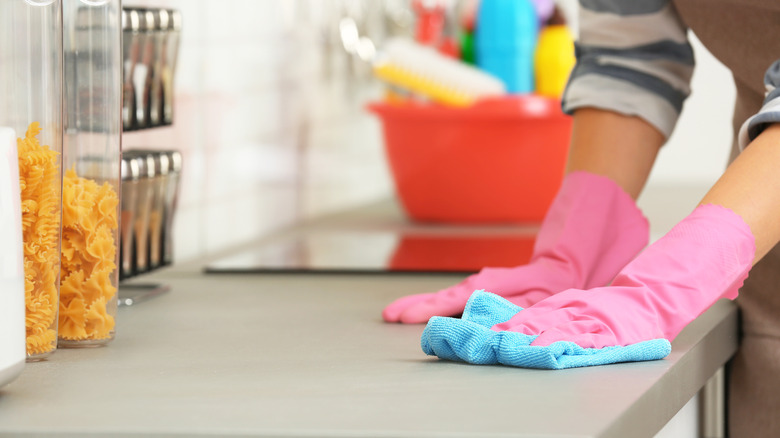Here's How Often You Should Really Be Disinfecting Your Kitchen
Cleanliness is next to Godliness, or so the saying goes, which is why we are probably in constant pursuit of cleaning hacks to help lighten the load. Whether we are scouring the likes of TikTok for ways to clean our oven, or trying to avoid the mistakes everyone makes when they clean their refrigerator, these tips and tricks simply make life a little easier so we can spend more time enjoying the day. But did you know there is a difference between cleaning and disinfecting your kitchen? It's easy to fall into the trap that these processes are one in the same, but according to Kitchn, they are quite different.
As the cooking and home blog explains, cleaning is about getting rid of the daily dirt and grime that can build up quicker than any of us would care to admit, where as disinfecting means killing any bacteria, germs, or viruses that might be lurking on your surfaces. They go on to cite the CDC, which states, "Disinfecting does not necessarily clean dirty surfaces or remove germs, but by killing germs on a surface after cleaning, it can further lower the risk of spreading infection." Translation? It is essential that you clean before you disinfect. According to the New York Post, if you are like the average American household, your kitchen gets cleaned about 8 times per month, and the kitchen is actually the room that is cleaned with the most frequency. But how often is it necessary to disinfect your kitchen?
One or two times per week is optimal
Per Kitchn, there are several factors that go into determining the frequency you need to exercise when it comes to disinfecting your kitchen. Any high traffic areas that come in contact with lots of hands and raw foods should be disinfected between one and two times per week, on average. However, the more people who are living in your home, the more often you will have to disinfect your kitchen. But, with that said, when someone in your home is sick, you will have to be a little more vigilant with your disinfecting and diligently disinfect any surface the individual comes into contact with in the kitchen. As Melissa Maker, founder of Clean My Space, told Kitchn, "It's really important to clean points of contact — switches, faucet handles, tables, and counters — because it helps reduce the transmission of bacteria and viruses."
With that said, they also suggest that, if you have spilled some meat juices or you have raw chicken touching a cutting board, you are going to want to clean and disinfect those areas ASAP so they do not contaminate other foods and so no one touches those surfaces and picks up any bacteria or viruses. Cleaning and disinfecting your kitchen can be a lot of work, but it will also help protect your family and give you a little peace of mind.

